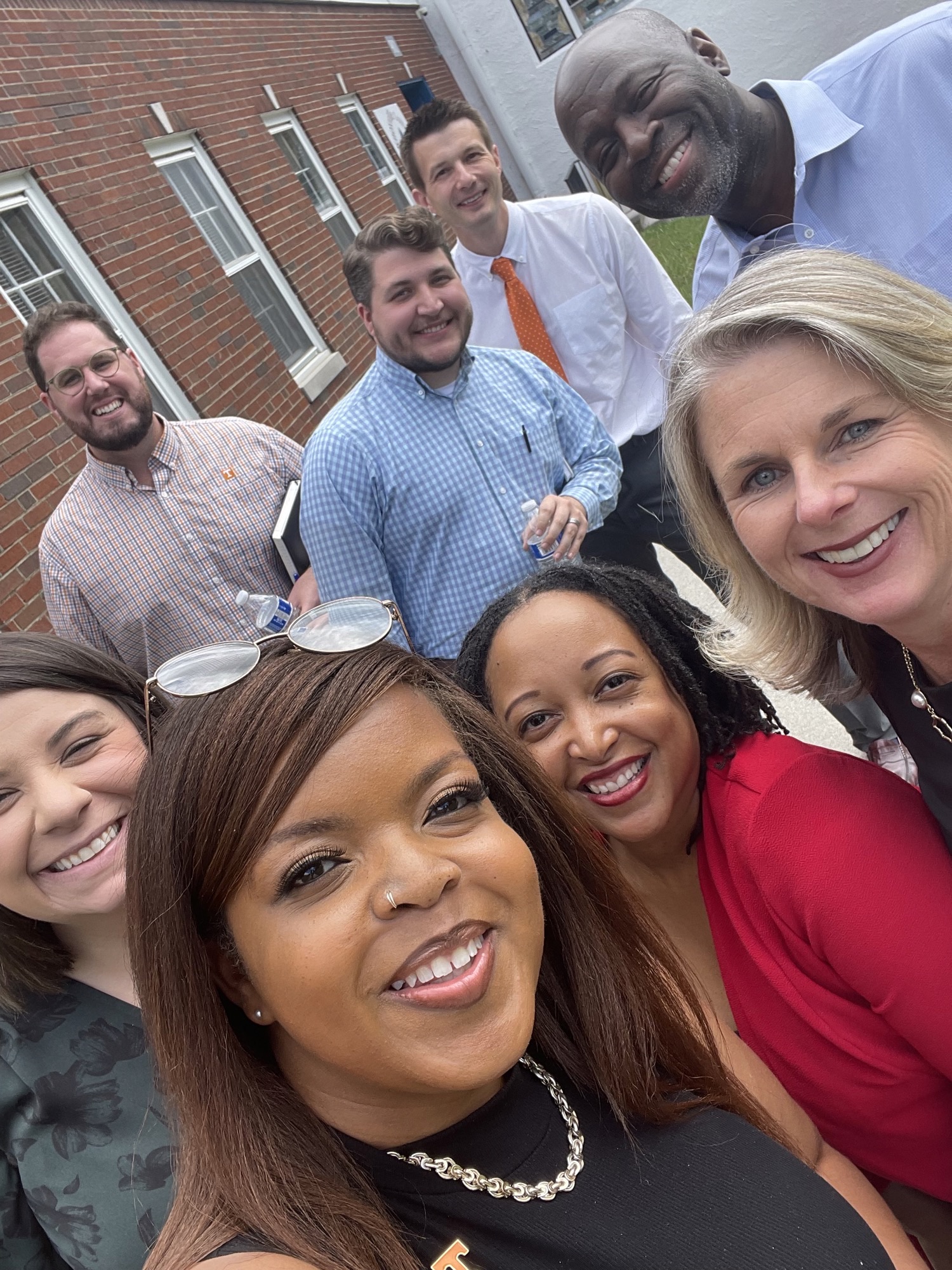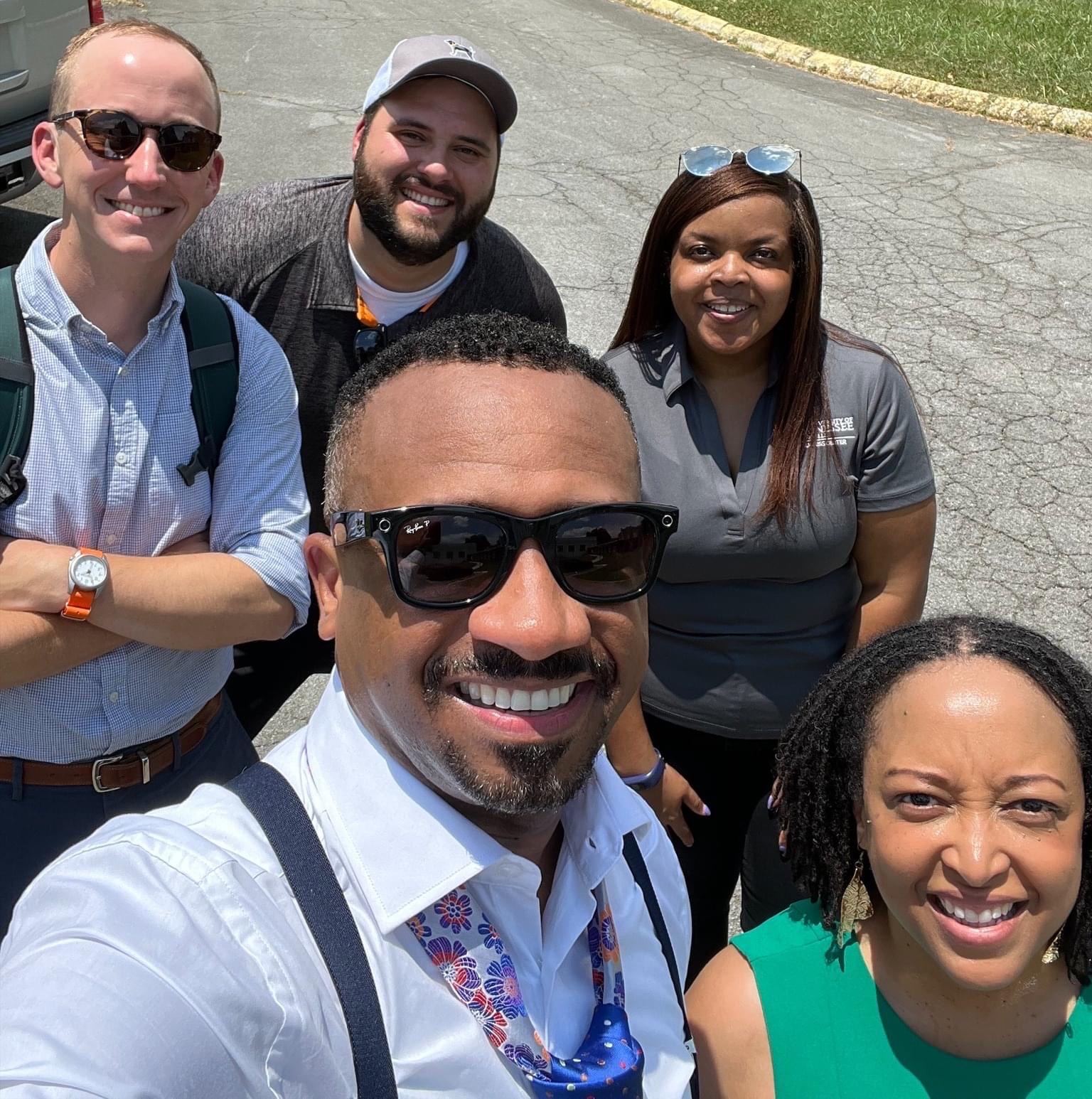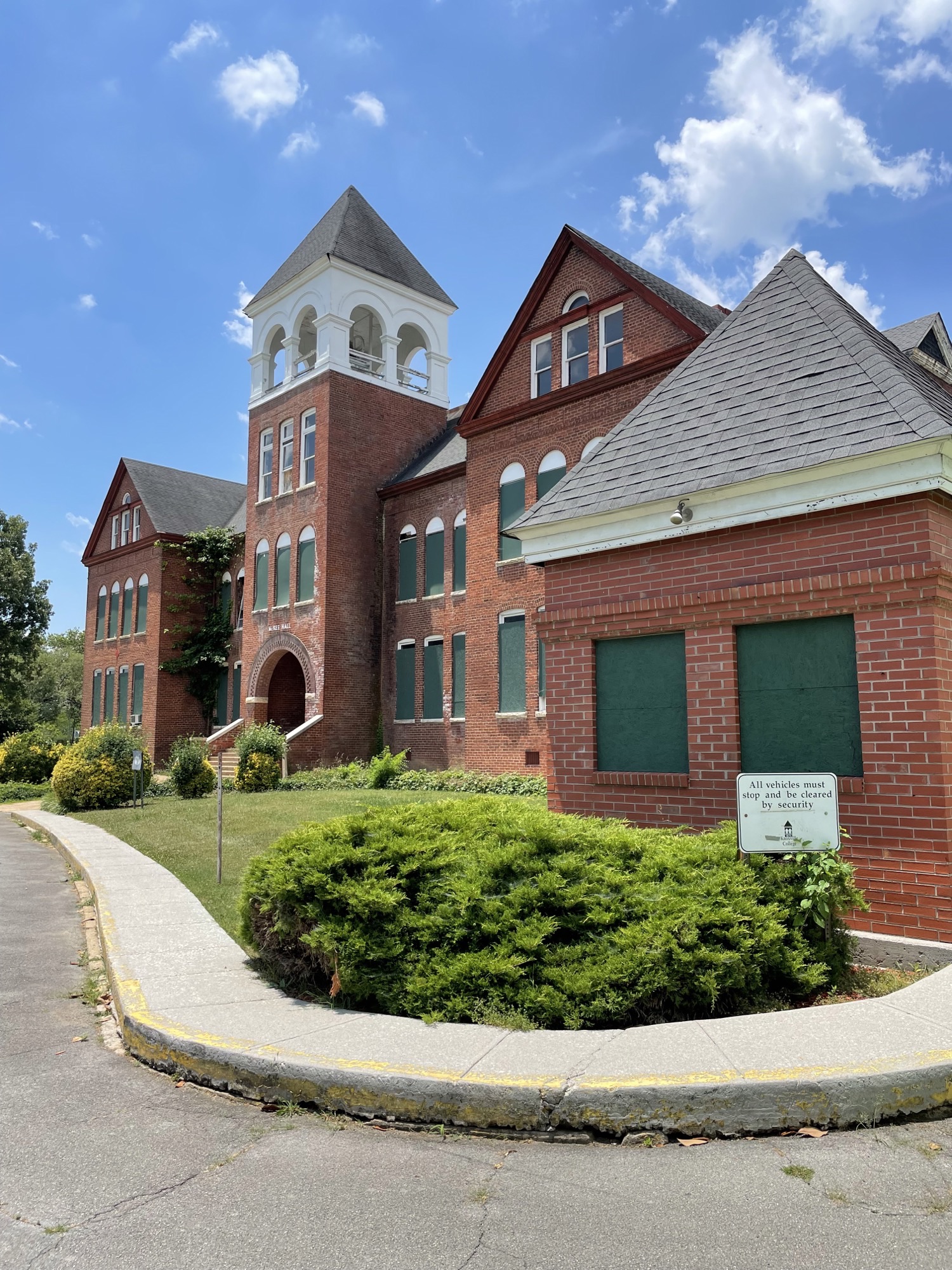Two venerated institutions of higher learning—UT and Knoxville College—stand just over a mile apart in downtown Knoxville. As the institutions work together to advance reaccreditation of the historically Black college, a moment to elevate the entire region appears.
by Linda Billman
The partnership offers a rare live case study for doctoral students in the UT Department of Educational Leadership and Policy Studies (ELPS).
 “Knoxville College has a very rich legacy in Knoxville. And they are very proud—as they should be—of the history of the students they have served and currently serve and what that future could look like,” says Hope Newbill, one of the students on the accreditation team. “Being able to work on a team of people who all believe in the mission of KC and the power of the education that students can get at KC has been really incredible.”
“Knoxville College has a very rich legacy in Knoxville. And they are very proud—as they should be—of the history of the students they have served and currently serve and what that future could look like,” says Hope Newbill, one of the students on the accreditation team. “Being able to work on a team of people who all believe in the mission of KC and the power of the education that students can get at KC has been really incredible.”
Key to any higher education institution’s success, academic accreditation enables students to qualify for federal financial aid, transfer to another college, or enter graduate school with the recognized credentials. Obtaining accreditation is the essential first goal in a large-scale plan to revitalize the college, help it become sustainable, and reclaim its place as a center for serving underserved Black youth in the community.
When college representatives reached out last spring to ELPS department head and professor Robert Kelchen and Jimmy and Ileen Cheek Endowed Professor of Higher Education Patrick Biddix, they immediately saw how the partnership could benefit doctoral students and earn them course credit.
“We already had our classes set for summer and fall. And we had to rearrange class schedules to get this to work out,” says Kelchen. “This kind of a hands-on opportunity to learn about how a college works and help a college get back to its former glory is just amazing.”
The college was founded in 1875 to educate freed previously enslaved men and women and has educated hundreds of students of distinction. Building on the work of college administrators, ELPS students spent the summer semester with Kelchen to learn about historically Black colleges and universities (HBCU), the accreditation process, governance, finance, academic affairs, and other aspects of business and higher education.
The fall class was entirely focused on addressing and creating documents to complete the 17 stringent specifications of the Transnational Association of Christian Colleges and Schools (TRACS) accreditation application, which is the national institutional accrediting agency for Christian postsecondary institutions, colleges, universities, and seminaries.
“The ELPS students working with KC administrators are creating or updating handbooks, communications plans, mission, vision, and values—materials that go into the operation of the college,” says Biddix, who taught the fall semester.
 Knoxville College Executive Vice President and Chief Operations Officer Dasha Lundy welcomes new eyes on the college, which lost its accreditation in 1997. “The paperwork is there, but it has not been updated,” Lundy says. “We’ve been around for 147 years. How do you bring the school into a new space? We have a catalog, and they’re creating a streamline for us. We don’t have that much administrative capacity. I tell them to slash or question it.”
Knoxville College Executive Vice President and Chief Operations Officer Dasha Lundy welcomes new eyes on the college, which lost its accreditation in 1997. “The paperwork is there, but it has not been updated,” Lundy says. “We’ve been around for 147 years. How do you bring the school into a new space? We have a catalog, and they’re creating a streamline for us. We don’t have that much administrative capacity. I tell them to slash or question it.”
Hope Atkins and her ELPS cohorts are revisiting and reimagining the associate degree curriculum that the college currently offers to ensure the programs are going to serve its students well after accreditation.
“That’s going to help their students once they come for an associate’s degree at KC—there are transfer pathways, there is a way to take it to a four-year program or tech school or some kind of certification—something that’s going to set them up to be successful,” Atkins says.
Serendipitously, the diversity of the ELPS students transformed them into a dream team for the project. Veteran UT faculty and staff and newly minted master’s students from nearby universities brought institutional research, communications expertise, diversity and strategic planning, academic coaching, student services, and other diverse professional and lived experiences. What surprised everyone was the bond of a shared mission.
“It’s been amazing. I consider them family. I was just surprised that they were totally in. All in. This assignment for them—they said they feel like they are serving the community by participating,” says Lundy.
ELPS student LaDawna Williams is using the classes, her work as a senior academic coach at UT, and her perspective as a first-generation college student to look specifically at what support services students need as they navigate coming to college—all to benefit the student experience.
“We’ve also been working on the strategic vision, the faith statement, we’ve worked on the organizational structure. Looking at the job description and making sure everything is correct,” Williams says.
The hands-on opportunity to learn how a college works helps set up the students for their future jobs, according to Kelchen.
“With what these students will be doing professionally, they’ll need to know how accreditation works,” Kelchen says. They may not be the person filling out the documents themselves, but they may be overseeing that person. So, knowing more about all the technical requirements, that’s a really valuable skill set.”
Williams said the experience has helped her learn how to be proactive and strategic in order to stay ahead of the game. “It’s definitely growing me into the profession and the leader that I aspire to be. I want to be the type of person and leader who moves and leads with a purpose who supports and encourages, uplifts, and inspires others to do the same in any type of endeavor they pursue.”

Knoxville College’s path to successful accreditation will go far beyond the fall 2022 semester when the ELPS students, along with college administrators, will have completed the application. The review process could take up to three years. Biddix says he expects future ELPS students will be involved to help the college navigate the process. “UT folks are committed to seeing this all the way through,” he says.
Atkins and Williams recognize the significance of their work to Knoxville College’s future students, to Knoxville, and to East Tennessee’s only HBCU.
“To know that the work we’re doing as the accreditation team lays the foundation for the incredible work that Knoxville College is going to be able to do hopefully for decades to come and to be just a part, a small part of that process, has been really great,” says Newbill.
“I definitely feel like I’ve gotten more than I could ever imagine out of this experience,” says Williams. “Because opportunities like these don’t happen every day; they just don’t. And it’ll be very impactful.”

